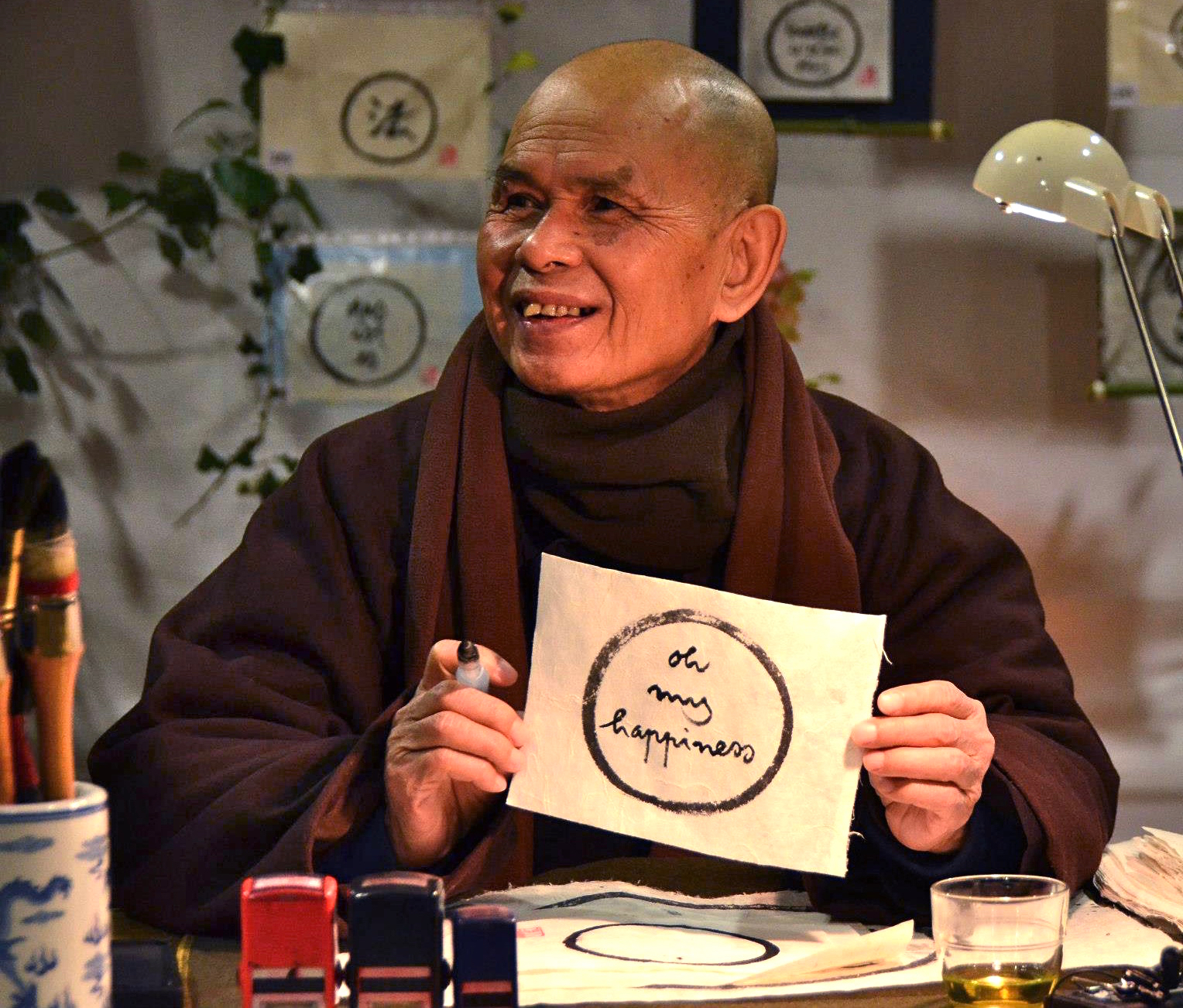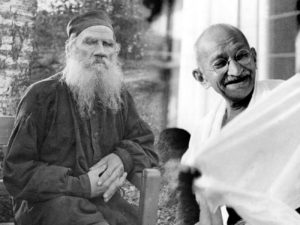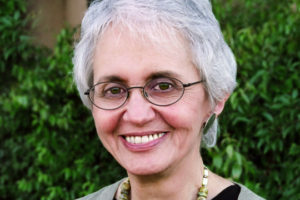Kurt Vonnegut was once asked by a wary pregnant woman for his thoughts on bringing a new innocent life into such a scary world. He said that what made being alive almost worthwhile for him, besides music, was all the saints he met, who could be anywhere. And by saints he meant “people who behaved decently in a strikingly indecent society”.
Thich Nhat Hanh, the revered Buddhist Monk and peace activist died last week, and he was for sure decent. Like millions of others, I loved the man. Dr. Martin Luther King, Jr., called Thich Nhat Hanh “an Apostle for peace and nonviolence”, and nominated him for the Nobel Peace Prize. Thich Nhat Hanh was many things, including a poet, activist, world leader, author, and a vegan! He was remarkable in too many ways to count, but I may have admired him the most for his activism, and his ability to inspire and even thrive with a non-violent message of peace, love, and compassion. I mean, how does anyone do that, especially in today’s world where the US carries the biggest stick, and always seems to be itching to create the next war? So yes, I deeply admire, and love Thich Nhat Hanh. In fact, I am certain that it would take me at least three lifetimes of constant focus, to be half as “cool” as this beautiful man. 🙂
Thich Nhat Hanh taught us what mindfulness means. When I hear the word mindful, I no longer think of just the definition, I think of Thich Nhat Hanh too. He showed us how important it is to try and appreciate the smallest things in life by finding true joy in the simple moments and activities of everyday life, as well as when we spend time in nature, and with animals and people too.
“Be yourself. Life is precious as it is. All the elements for your happiness are already here. There is no need to run, strive, search or struggle..the present moment is filled with joy and happiness. If you are attentive, you will see it” – Thich Nhat Hanh
More Thich Nhat Hanh quotes:
On happiness:
“You have to realize that happiness is not something you find at the end of the road. You have to understand that it is here, now.”
On choices:
“By destroying the animals, the air, and the trees, we are destroying ourselves”
On joy & smiling and smiling & joy:
“Sometimes your joy is the source of your smile, but sometimes your smile can be the source of your joy.”
On Love:
“You must love in such a way that the person you love feels free.”
On the Standard American Diet (SAD):
“Every day, 40,000 children die in the world for lack of food. We, who overeat in the West, who are feeding grains to animals to make meat, are eating the flesh of these children.”
On being gay:
“I believe that we all have the need to love and to be loved, and life without love is not pleasant, it is suffering.”
On being beautiful:
“To be beautiful means to be yourself. You don’t need to be accepted by others. You need to accept yourself.”
On the consumption of animals:
“I am determined not to kill, not to let others kill, and not to support any act of killing in the world, in my thinking, and in my way of life…we should consume in such a way that helps to reduce the suffering of living beings. And that way we can preserve compassion in our hearts.”
On miracles:
“People usually consider walking on water or in thin air a miracle. But I think the real miracle is not to walk either on water or in thin air, but to walk on earth. Every day we are engaged in a miracle which we don’t even recognize: a blue sky, white clouds, green leaves, the black, curious eyes of a child—our own two eyes. All is a miracle.”
On listening:
“When you make the effort to listen and hear the other side of the story, your understanding increases and your hurt diminishes…The first thing we can do in these situations is to acknowledge internally that the pictures we have in our head, what we think happened, may not be accurate. Our practice is to breathe and walk until we are more calm and relaxed…The second thing we can do, when we are ready, is to tell the people who we think have hurt us that we are suffering and that we know our suffering may have come from our own wrong perception. Instead of coming to the other person or people with an accusation, we can come to them for help and ask them to explain, to help us understand why they have said or done those things…There is a third thing we need to do, if we can. The third thing is very hard, perhaps the hardest. We need to listen very carefully to the other person’s response to truly understand and try to correct our perception. With this, we may find that we have been the victim of our wrong perceptions. Most likely the other person has also been a victim of wrong perceptions.”
On living and dying:
“This body is not me; I am not caught in this body, I am life without boundaries, I have never been born and I have never died. Over there, the wide ocean and the sky with many galaxies all manifests from the basis of consciousness. Since beginningless time I have always been free. Birth and death are only a door through which we go in and out. Birth and death are only a game of hide-and-seek. So smile to me and take my hand and wave good-bye. Tomorrow we shall meet again or even before. We shall always be meeting again at the true source. Always meeting again on the myriad paths of life.”
On meaning:
“Our own life has to be our message.”
This last quote, “Our own life has to be our message” might be my favorite. I am too often reminded that not everyone can be a great poet, or scientist, or visionary. But everyone can be kind, great, or “saintly”. I mean, I can’t tell you how many beautiful, and inspiring people I have met in my life, and continue to meet, thankfully. 🙂
Tributes:
“Rest in peace, beloved soul. Thank you for continuing to inspire me and so many others, shining a klieg light of wisdom in the darkness. I’ll always treasure the day we spent together–your peaceful and beautiful presence truly embodied your teachings.” – Dr. Dean Ornish
“In his peaceful opposition to the Vietnam war, his support for Martin Luther King and most of all his dedication to sharing with others not only how mindfulness and compassion contribute to inner peace, but also how individuals cultivating peace of mind contributes to genuine world peace, the Venerable lived a truly meaningful life.” – The 14th Dalai Lama
Thich Nhat Hanh’s book “The Miracle of Mindfulness” is wonderful, and particularly helpful with regards to breathing techniques. Who knew that breathing mindfully can be more important than food! I use his breathing techniques almost every morning while lying in bed, and sometimes at night too when I need to relax. I wish I could say that I am equally diligent with his meditation recommendations, but all in good time, I hope. Like I said, three dedicated lifetimes to be half as cool. 🙂
Here is an excerpt from The Miracle of Mindfulness, which walks you through the breathing technique:
Taking Hold of One’s Breath
Thus mindfulness is at the same time a means and an end, the seed and the fruit. When we practice mindfulness in order to build up concentration, mindfulness is a seed. But mindfulness itself is the life of awareness: the presence of mindfulness means the presence of life, and therefore mindfulness is also the fruit. Mindfulness frees us of forgetfulness and dispersion and makes it possible to live fully each minute of life. Mindfulness enables us to live.
You should know how to breathe to maintain mindfulness, as breathing is a natural and extremely effective tool which can prevent dispersion. Breath is the bridge which connects life to consciousness, which unites your body to your thoughts. Whenever your mind becomes scattered, use your breath as the means to take hold of your mind again.
Breathe in lightly a fairly long breath, conscious of the fact that you are inhaling a deep breath. Now breathe out all the breath in your lungs, remaining conscious the whole time of the exhalation. The Sutra of Mindfulness teaches the method to take hold of one’s breath in the following manner: “Be ever mindful you breathe in and mindful you breathe out. “Breathing in a long breath, you know, ‘I am breathing in a long breath.’ Breathing out a long breath, you know, ‘I am breathing out a long breath.’ Breathing in a short breath, you know, ‘I am breathing in a short breath.’ Breathing out a short breath, you know, ‘I am breathing out a short breath.” “Experiencing a whole breath-body, I shall breathe in,” thus you train yourself. “Experiencing the whole breath-body, I shall breathe out,” thus you train yourself. “Calming the activity of the breath-body, I shall breathe in,” thus you train yourself. “Calming the activity of the breath-body, I shall breathe out,” thus you train yourself.
In a Buddhist monastery, everyone learns to use breath as a tool to stop mental dispersion and to build up concentration power. Concentration power is the strength which comes from practicing mindfulness. It is the concentration which can help one obtain the Great Awakening. When a worker takes hold of his own breath, he has already become awakened. In order to maintain mindfulness throughout a long period, we must continue to watch our breath.
It is autumn here and the golden leaves falling one by one are truly beautiful. Taking a 10-minute walk in the woods, watching my breath and maintaining mindfulness, I feel refreshed and restored. Like that, I can really enter into a communion with each leaf. Of course, walking alone on a country path, it is easier to maintain mindfulness. If there’s a friend by your side, not talking but also watching his breath, then you can continue to maintain mindfulness without difficulty. But if the friend at your side begins to talk, it becomes a little more difficult. If, in your mind, you think, “I wish this fellow would quit talking, so I could concentrate,” you have already lost your mindfulness. But if you think, instead, “If he wishes to talk, I will answer, but I will continue in mindfulness, aware of the fact that we are walking along this path together, aware of what we say, I can continue to watch my breath as well. If you can give rise to that thought, you will be continuing in mindfulness. It is harder to practice in such situations than when you are alone, but if you continue to “practice nonetheless, you will develop the ability to maintain much greater concentration. There is a line from a Vietnamese folk song that says: “Hardest of all is to practice the Way at home, second in the crowd, and third in the pagoda.” It is only in an active and demanding situation that mindfulness really becomes a challenge!”
What can I say? Thank you Mr. Nhat Hanh, your life was the most powerful message. Until we meet again. 🙂
Click here for a link to a Thich Nhat Hanh interview with Oprah Winfrey.
Click here for a teaching video from Thich Nhat Hanh.
Click here for an audio excerpt from The Miracle of Mindfulness on how to “wash the dishes.”
Click here to learn why everyone should be vegan.
Click here to learn more about Thich Nhat Hanh’s Death.
Click here to learn more about Thich Nhat Hanh’s thoughts on being gay.
Click here to learn about Mr. Nhat Hanh’s thoughts on living and dying.
Click here for Thich Nhat Hanh’s thoughts on War, Hatred, and Violence.
Click here to learn more about Thich Nhat Hanh and Desmond Tutu.
Click here to learn more about Thich Nhat Hanh’s thoughts on Listening.
Click here for a link to “The Miracle of Mindfulness”.
Click here for a link to Plum Village, a monastic community founded by Zen Master Thich Nhat Hanh.




